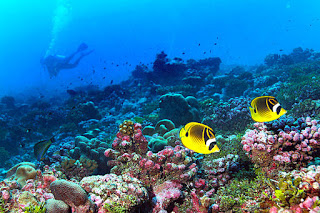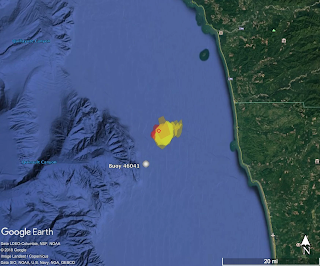2. E.P.A. Chief Scott Pruitt Resigns Under a Cloud of Ethics Scandals
The first mission designed to hunt a meteorite that crashed into the ocean has now discovered what may be tiny fragments of the meteorite’s crust, researchers say. On March 7, three National Oceanic and Atmospheric Administration (NOAA) weather stations detected the fall of a meteorite about 15.5 miles (25 kilometers) off the coast of Washington state. “The fall was widely seen around local areas and widely heard around local areas — it came with some loud sonic booms,” Marc Fries, the cosmic dust curator for NASA, told Live Science.
———————————————–
 Future global warming may eventually be twice as warm as projected by climate models and sea levels may rise six meters or more even if the world meets the 2°C target, according to an international team of researchers from 17 countries. The findings published last week in Nature Geoscience are based on observational evidence from three warm periods over the past 3.5 million years when the world was 0.5°C-2°C warmer than the pre-industrial temperatures of the 19th Century.
Future global warming may eventually be twice as warm as projected by climate models and sea levels may rise six meters or more even if the world meets the 2°C target, according to an international team of researchers from 17 countries. The findings published last week in Nature Geoscience are based on observational evidence from three warm periods over the past 3.5 million years when the world was 0.5°C-2°C warmer than the pre-industrial temperatures of the 19th Century.
A new set of Chinese tariffs on U.S. seafood including items made from shark fins could jeopardize what remains of the American industry for the controversial products. China announced the 25 percent tariffs in mid-June that are expected to apply to exported American goods such as lobster and salmon beginning in July. They also will apply to whole or cut shark fins, as well as shark fin products that are canned or preserved, according to a Chinese government website.
Sea Save Foundation is committed to raising awareness of marine conservation. The Week in Review is a team effort produced by the Sea Save staff to provide a weekly summary of the latest in marine research, policy, and news.










